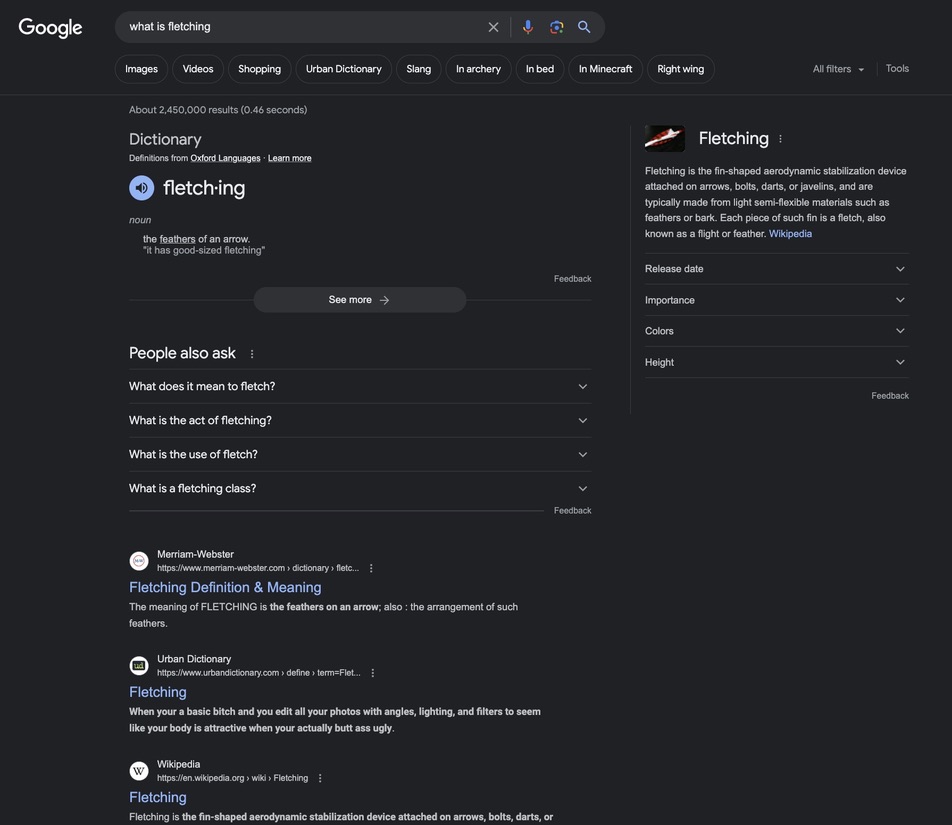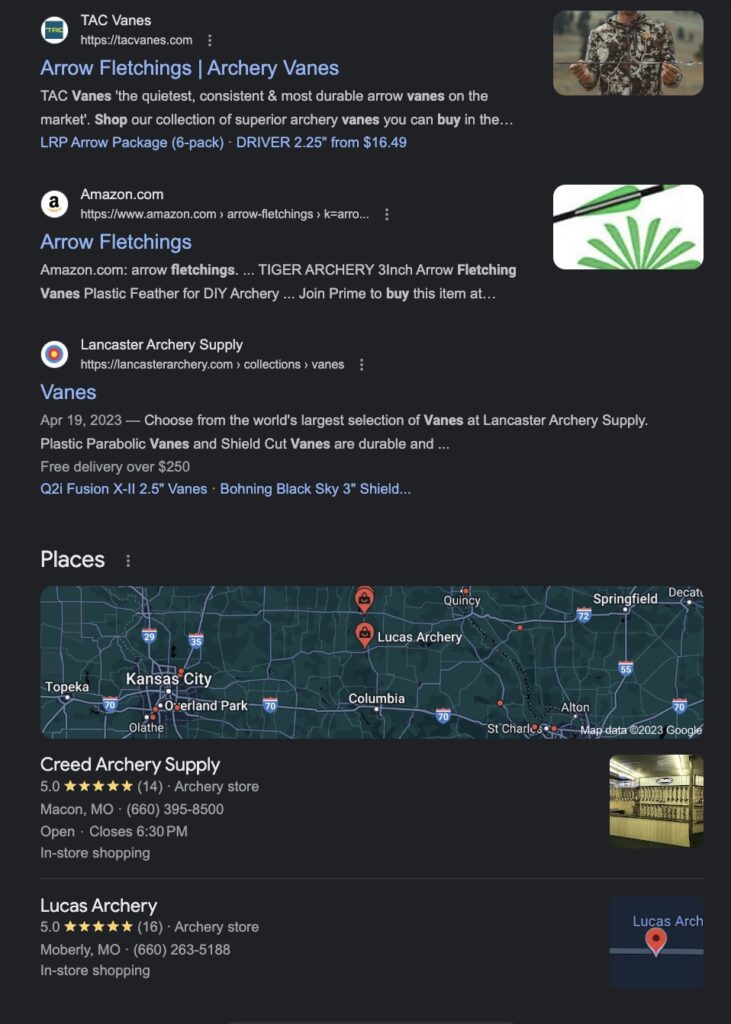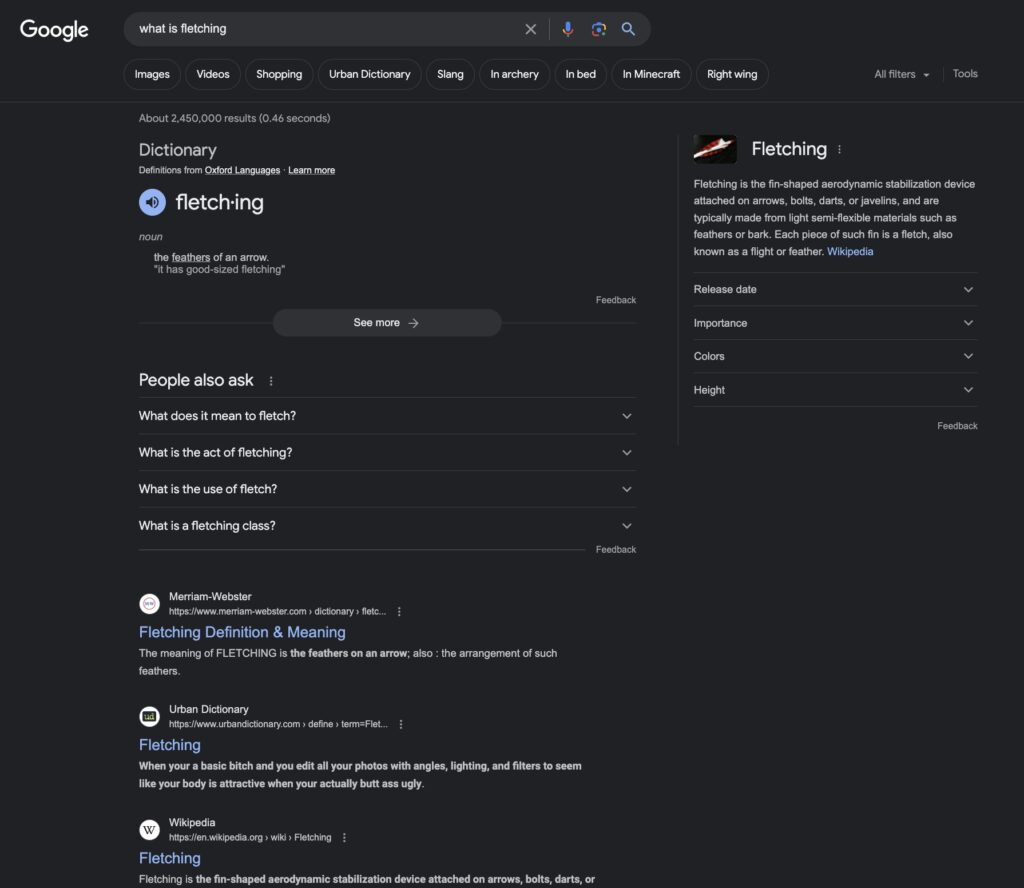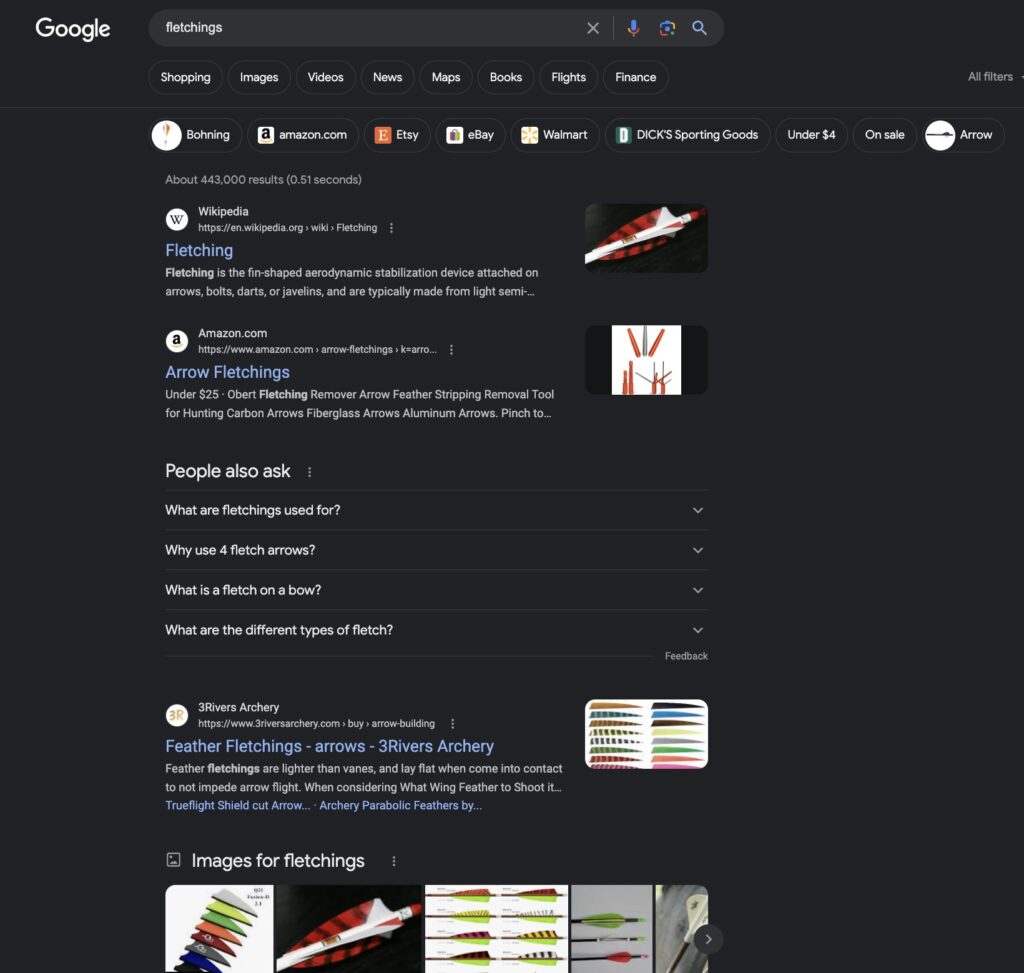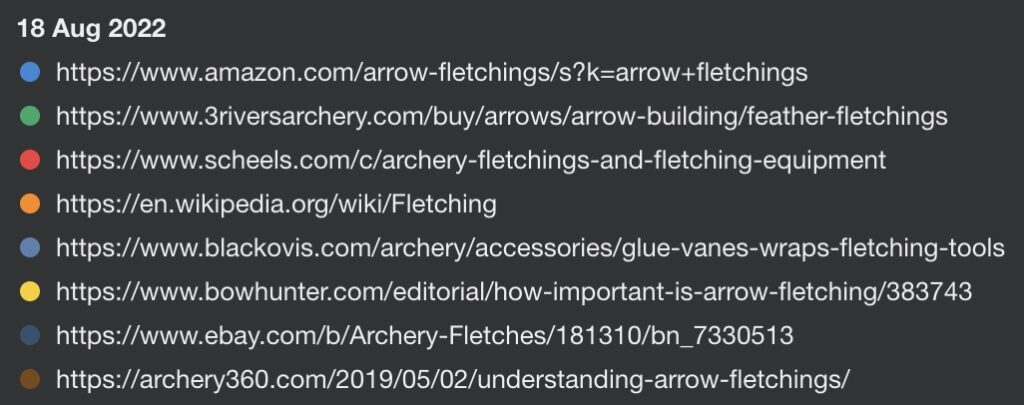Table of Contents
If you have kept a close eye on keywords within the past few years, you have probably seen one of the following scenarios play out. Either your rankings have shifted, and a new non-business competitor is outranking you, or you have suddenly begun outranking them.
Maybe you are a provider with a product page ranking on page 1, and suddenly a review site has knocked you down in rankings.
Or, maybe the opposite has happened – you have an informational resource page that previously performed well for a keyword, and now another competitor product page has shifted in rankings, changing yours as a result.
A mixed intent SERP is likely the culprit, and those are very common.
In this article, we’ll discuss:
- What search intent is
- The most common types of search intent
- What a mixed intent SERP is
- How mixed intent SERPs can impact your rankings
- How to respond to those rankings impacts
What is search intent?
Behind every query, there is an intent. The user is looking for something, and Google does its best to serve up the most relevant, useful results. Sometimes, a query’s intent is pretty obvious. Queries that include “What is _____” are often informational and, therefore, Google serves up informational resources. Queries that contain, “_____ for sale” or “buy ______” are often transactional, meaning Google will serve up results that allow that user to buy something (E-commerce, local stores, etc.).
Search intent refers to the types of results Google returns for a particular query. If informational results make up most of a SERP, it’s an informational SERP. If it’s filled with transactional, product-focused queries, it’s transactional. While this might sound obvious now, it gets more complicated when looking at mixed intent SERPs and the types of queries that return those.
Before we dive into mixed intent SERPs, let’s take a quick look at informational and transactional SERPs.
Informational Intent SERPs
Informational intent for a keyword refers to keywords where a user needs an answer to their question with no apparent desire to purchase anything. These are often in the form of a question but don’t always have to be. SERPs for these keywords are often purely informational or return only informational results.
A good example might be, “what is fletching”. This keyword is pretty obvious in its intent: the user is looking for an answer to their question, so Google is serving up purely informational results to serve that query.
However, there are informational queries where you could likely argue that this person is about to be ready to purchase. These queries generally suggest that the person is conducting research for an upcoming purchase, such as, “What’s the best fletching”? We sometimes refer to these as “consideration” or “commercial investigation” intent, meaning the person is between the research and purchase phase (or researching for their purchase).
Transactional Intent
Transactional intent refers to queries where it’s clear that the user is trying to purchase something. These queries can be as obvious as to include phrases like “for sale,” “buy,” “cheap,” “near me,” among others. However, they’re usually a bit more subtle. These result in transactional SERPs where Google serves up local stores, E-commerce sites, product ads, etc.
Let’s take a look at the SERP for “buy fletchings,” a keyword that is obviously transactional because of the use of “buy”:
Here, we see nothing but buying options, ranging from E-commerce to local brick-and-mortar stores. These results very much serve the intent of the query.
Mixed Intent
Now that we’ve had a quick refresh on two of the more basic search intents, we can talk about mixed intent.
Mixed intent means that Google serves up a mix of informational and transactional results because the query intent is not entirely clear.
Mixed intent SERPs often skew one way or the other. I tend to see 6/4, 7/3, and 8/2 splits. It’s rarely half and half. This is just based on my personal experience, though.
Sometimes even the most subtle changes in a query can change the intent. Let’s take a look at the SERP for “fletching:”
This is a mixed intent SERP with a heavy skew towards informational, with a dictionary definition at the top, a Wikipedia knowledge panel, several informational guide-type pages, etc. What’s making this mixed is the Amazon transactional result at #3.
Now, this is where intent can get tricky. Let’s look at the plural version of the keyword we just looked at: “fletchings.”
Here, we have Wikipedia, followed by Amazon, and then 3Rivers Archery: an informational result, followed by two transactional results. This is another mixed intent SERP with a heavier skew towards transactional results. If we were to scroll further down the “fletchings” SERP, we’d only see one more informational result; everything else is transactional. So, in this case, 8/2 split with a skew towards transactional.
The tricky thing about mixed intent SERPs is that they can be volatile and can lead to rankings shifts that are difficult to understand or explain.
When Search Intent Shifts Impact Your Rankings
Let’s go back in time to August 2022, when the SERP for “fletchings” had an even heavier skew towards transactional:
Here, we can see that 3Rivers Archery is in the #2 slot, right behind Amazon. Wikipedia, the first informational result in this SERP, doesn’t rank until #4. This is still a mixed intent SERP, but it has a much heavier skew towards transactional since positions 1 – 3 are all transactional.
Fast forward to now, and 3Rivers Archery is in the #3 slot behind Wikipedia and Amazon. Wikipedia, Amazon, and 3Rivers Archery are still the top 3 results, but Wikipedia, an informational, non-business competitor, rose in rankings, which pushed 3Rivers Archery down.
Did it lose rankings? Technically, yes. But, if you think about it: it’s still the second transactional result in the SERP. So, it’s not like a business competitor has suddenly begun outcompeting them; Google has just suddenly shifted this SERP’s intent in favor of informational results. And, unfortunately, there’s not much we can do to change Google’s mind behind this shift.
Fortunately, though, there are tactics you can employ to try and regain your rankings.
How to Get Your Rankings Back for Keywords With Mixed Search Intent
I mentioned earlier that search intent often shifts. Tomorrow or even later today, we could likely see Amazon back in #1 and 3Rivers Archery back in #2. So, sometimes, you don’t have to do anything to get your rankings back – it’ll just happen.
But, let’s say, for example, that this search intent is locked down. What can 3Rivers Archery do to regain their #2 spot or get to #1?
The way I see it, they’ve got two options:
- Become the #1 transactional result by outranking Amazon and, thus, becoming the #2 position behind Wikipedia.
- Create an informational piece of content that’s worthy of the #1 position.
In this unique instance, both options will be challenging, considering we’re talking about outranking Wikipedia and Amazon, but these are the two solutions I’d start with in most cases.
If you’re exploring option number 2, you might have a couple of questions, such as:
Can a site’s transactional content rank alongside its informational content on page 1? Yes.
Will there be content cannibalization between the two pages that are targeting the same keyword? Not if it’s done correctly.
Let’s address the first question:
Can a transactional and an informational result rank alongside each other from the same site for the same query?
I don’t see this a ton, but I have seen it.
For this part of the discussion, let’s change our keyword focus and look at “applicant tracking system.” SERPs for SaaS keywords like this are all kinds of mixed, and here’s a great example:
In this screenshot, there are at least two noteworthy things:
- Jobscan’s Applicant Tracking System product page ranks right next to its informational blog post. It is worth noting that this is back in 2021. So, maybe we don’t see this as much these days.
- This SERP is all kinds of mixed: it contains purely transactional results (for instance, Jobscan’s product page), purely informational results (Wikipedia), and consideration intent results like G2’s reviews.
So, yes, transactional and informational content from the same site can rank on page 1 for the same query. However, we can also see that mixed intent SERPs can be complex, with Google serving multiple intents.
And I mentioned volatility earlier. Just for fun, let’s look at the Ahrefs ranking history report for this keyword:
Wow.
But will there be content cannibalization if you have two pages targeting the same keyword?
As long as the two pages serve unique intents/purposes and the intents are clear to both Google and users, I say “no.”
In fact, folks trying to target “applicant tracking system” with their product pages are likely missing a huge opportunity by not having an in-depth, informational resource dedicated to applicant tracking systems.
With a heavily mixed intent SERP as we saw above, either or both the product page and an informational resource could rank on page 1. Are they both worth having? Absolutely. They’re both likely crucial if you want to be competitive for this term.
Intent Changes Are Tough, but Not Impossible to Navigate
So, you’ve lost rankings, and a non-business competitor is pushing you down in SERPs.
Losing rankings is never fun, but this situation is one to expect and one that’s possible to address with the right tactics.
Don’t have time for all that yourself? Our SEO team sees this often and would love to help you get back on top. In fact, we’re a 4x SEO agency of the year, with experience achieving results for our clients, including:
- 500% Increase in SQLs for SMS Marketing Software
- +49% Organic Traffic Improvement from technical SEO
- 1125% ROI for an online retailer
Search News Straight To Your Inbox
*Required
Join thousands of marketers to get the best search news in under 5 minutes. Get resources, tips and more with The Splash newsletter:
